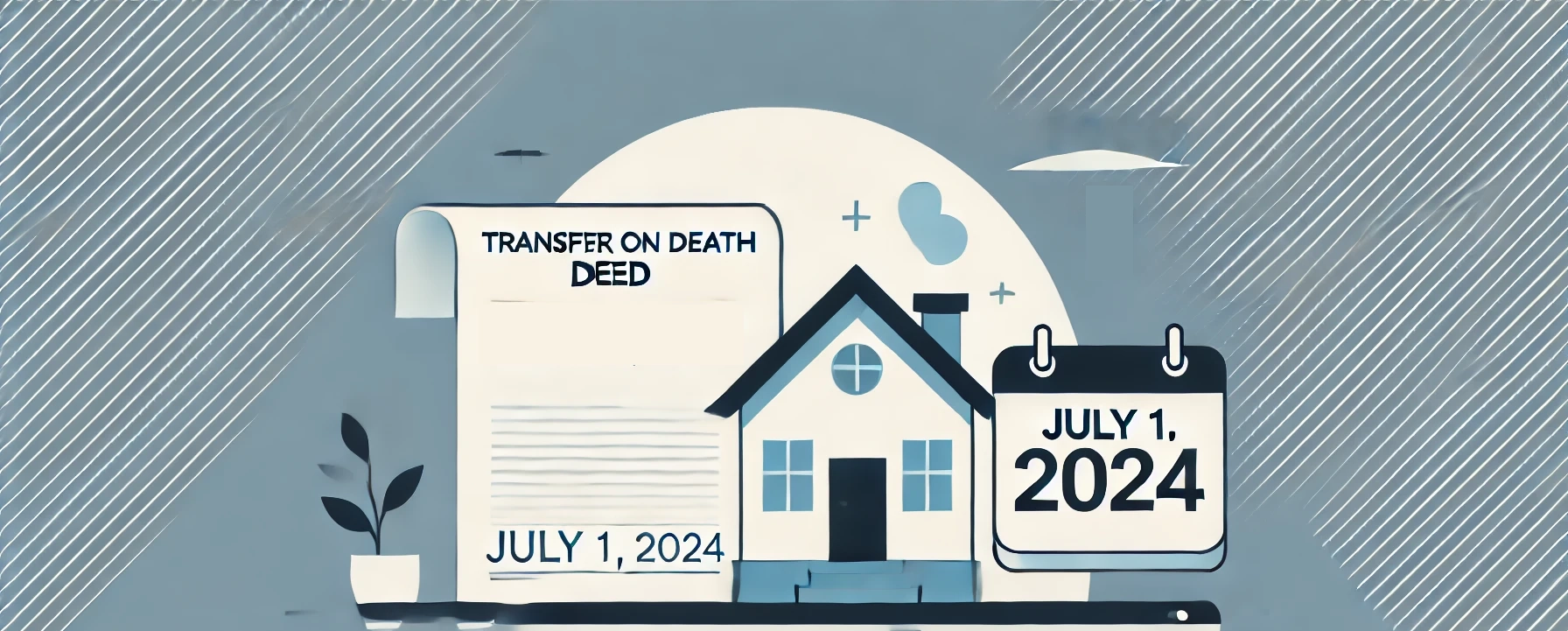
Starting July 1, 2024, all Indiana counties will implement new requirements for the Transfer on Death Deed (TODD). This legislative update mandates specific procedures and introduces the option of a $10 parcel fee for endorsements by county auditors. The changes are guided by the Indiana Code (IC), particularly IC 32-17-14-26 and IC 36-2-11-14. This article outlines the new requirements, provides context for the relevant statutes, and offers a brief background on the existing law.
Understanding the Transfer on Death Deed (TODD)
A Transfer on Death Deed allows property owners to designate beneficiaries who will inherit the property upon the owner’s death, bypassing the probate process. This deed must be recorded during the owner’s lifetime to be valid.
Background on Existing Law
Before the upcoming changes, Indiana law permitted the use of TODDs to facilitate the non-probate transfer of real property. The process involved recording the deed with the county recorder’s office, ensuring that the deed met all statutory requirements. However, the prior legislation did not require an endorsement from the county auditor, which sometimes led to inconsistencies in how these deeds were processed and recorded.
The existing laws ensured that upon the death of the property owner, the designated beneficiary would automatically gain ownership, provided the TODD was properly executed and recorded. Beneficiaries were required to file an affidavit with the county recorder to formalize the transfer, but the process lacked uniformity in auditor involvement, leading to potential administrative hurdles.
Key Changes Effective July 1, 2024
County Auditor Endorsement:
- The TODD must be endorsed by the county auditor before it can be recorded.
- An option of a $10 parcel fee may be applicable for this endorsement.
Statutory Requirements
IC 32-17-14-26: General Rules for Beneficiary Designation
Section 26 of IC 32-17-14 sets forth the general rules for beneficiary designations. According to this section:
- Any agreement required between the property owner and a transferring entity must align with this chapter’s rules.
- The rules for making, executing, accepting, and revoking a beneficiary designation cannot contradict this chapter.
Beneficiary Designation Affidavit Requirements:
Upon the death of the property owner, the designated beneficiary must file an affidavit in the county recorder’s office where the property is located. The affidavit must include:
- The legal description of the property.
- The date of the owner’s death.
- The names and addresses of all designated beneficiaries alive or existing at the owner’s death.
- The names of beneficiaries who did not survive the owner or do not exist at the owner’s death.
- A cross-reference to the recorded TODD.
This affidavit must be endorsed by the county auditor, as required by IC 36-2-11-14, to be recorded.
IC 36-2-11-14: Auditor’s Endorsement for Recording
Section 14 of IC 36-2-11 stipulates that the county recorder may only record deeds of partition, conveyances of land, or affidavits of transfer if endorsed by the county auditor. The endorsement must state one of the following:
- “Duly entered for taxation subject to final acceptance for transfer”
- “Not taxable”
- “Duly entered for taxation” as outlined in IC 36-2-9-18.
A recorder who violates this requirement is subject to a penalty of $5, which will be collected for the benefit of the common school fund.
Implications for Property Owners and Beneficiaries
These new requirements ensure a more streamlined and legally compliant process for transferring property via TODDs. Property owners must ensure their TODDs are correctly recorded and endorsed, and beneficiaries must comply with affidavit filing requirements to successfully transfer property ownership after the owner’s death.
Summary
The new statutory requirements effective July 1, 2024, enhance the clarity and enforceability of TODDs in Indiana. Compliance with these rules is crucial for the smooth transfer of property ownership upon the owner’s death.
